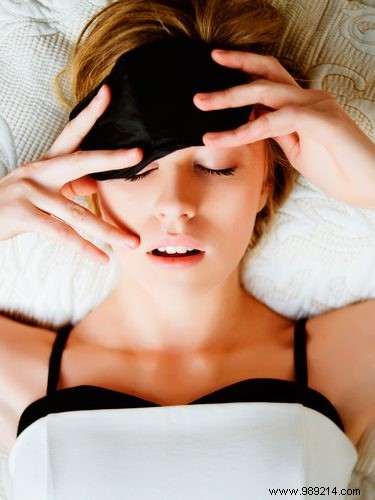
Out of your rhythm after the weekend? These are 6 tips to sleep better.
Step 1:rhythm, rhythm, rhythm
As tempting as it is to make it late on the weekend and sleep in for a long time, your body needs a regular sleep schedule. Research among students shows that people who sleep at irregular times are much more tired than people who follow a regular rhythm. Students with a good rhythm also get higher grades because they can concentrate better during the day. Try to get up around the same time every morning and go to bed at a fixed time.
Step 2:play with light If you dim the light an hour before you want to sleep, melatonin production starts. In the summer, blackout curtains in the bedroom can help. By pulling up the curtains in the morning and exposing yourself to as much light as possible, you ensure that the melatonin decreases again, so that you wake up better.
Step 3:get up without snooze
Don't use your alarm clock's snooze button in the morning to keep falling into short naps. You don't rest from it and you feel exhausted from the start of the day. As soon as the alarm goes off, immediately get moving:stretch, bend your knees and slowly roll back and forth. And afterwards:get out of bed!
Step 4:exercise, but not too late
People who exercise often sleep better and more deeply than non-athletes. But it is important to plan the sport well. Try to do high-intensity exercise no more than four hours before your regular bedtime. Research shows that endurance sports at a slow pace actually promote falling asleep.
Step 5:stop grinding
Sometimes you can't sleep well because you have an important meeting the next day or have to finish a complicated project. Or maybe you have trouble falling asleep every night because you keep on grinding. Cognitive behavioral therapy can then help; with a few tricks you can stop the maelstrom of thoughts. For example, take a half hour to worry about after dinner. You then think about plans and exciting events for the next day. You can also make it a to-do list and then do relaxing things.
Step 6:look at the layout of your bedroom
For some people, a different layout of the bedroom helps. Make sure you can see the door from your bed. If that is not the case, it can give you an unsafe feeling and you can suffer from insomnia. Preferably, the bed is placed with the head end against the left or right wall when viewed from the door. If you sleep with your head next to the door, it can give you a restless feeling.
Want to know more about a good night's sleep? View our file on sleeping.